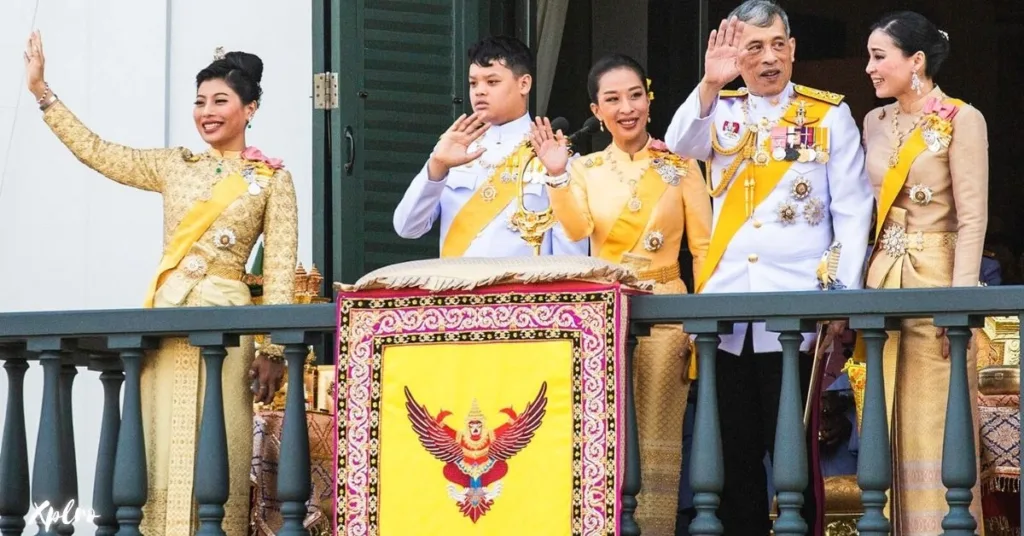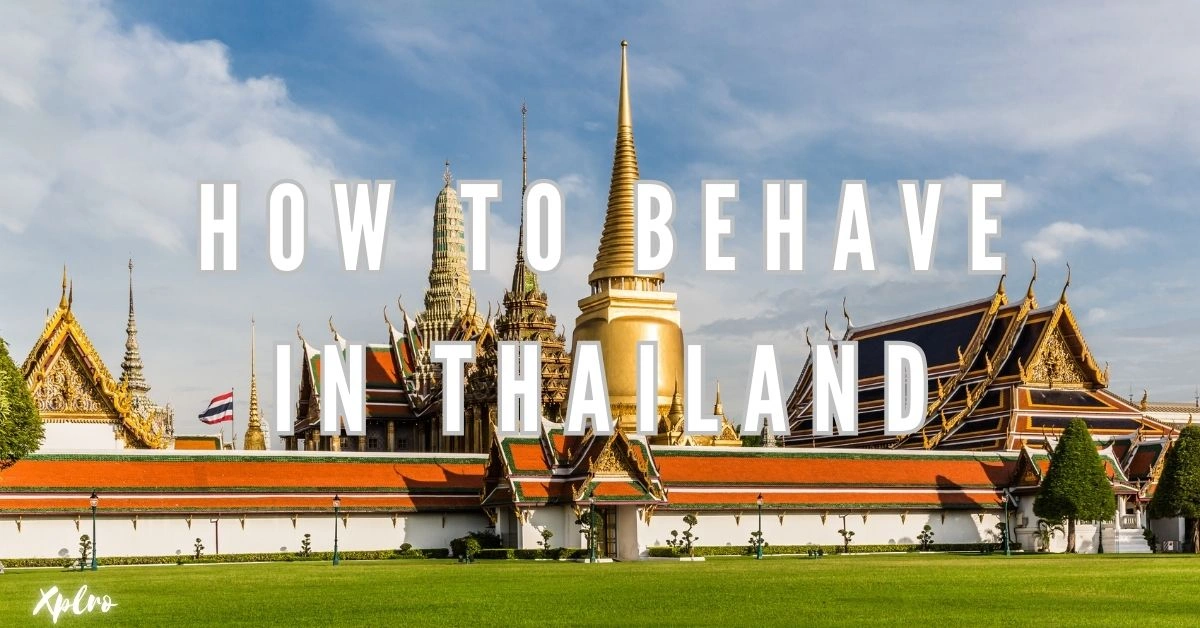How to Behave in Thailand, the “Land of Smiles,” is famous for its warm welcome, beautiful culture, and breathtaking scenery. To ensure a pleasant and respectful visit, it’s important to understand Thai customs and manners. This guide offers a simple explanation of Thai traditions, social rules, and behaviors that every traveler should know.
- 1. The Wai: Greeting with Respect
- 2. Dress Modestly, Especially in Temples
- 3. Temple Etiquette: Show Reverence
- 4. Mind Your Manners: Politeness is Key
- 5. Handling Money and Transactions
- 6. Respect for the Royal Family
- 7. Dining Etiquette: Eat Like a Local
- 8. Public Displays of Affection
- 9. Feet and Head: Understanding Hierarchy
- 10. Communication Tips: Language and Gestures
- 11. Environmental and Social Responsibility
- FAQs
1. The Wai: Greeting with Respect
What is the Wai?
The wai is a special Thai way of greeting. It’s like a gentle bow where you put your hands together in front of you, similar to praying. This gesture shows respect and is used to say hello, sorry, or thank you.
How to Wai Properly:
Who to Wai: Usually, you wai to people older than you or those who are more important. Return the Wai: If someone wais to you, you should wai back, unless they are working in a service job (like a hotel worker). A simple nod or smile is enough in those cases.
2. Dress Modestly, Especially in Temples
Thailand is a country that values tradition, particularly in religious places.

Temples: Your shoulders and knees should be covered. It’s best to avoid wearing clothes that are too tight or revealing. Public Areas: Swimwear is only for the beach. In towns and cities, it’s important to dress in a way that shows respect.
Why It’s Important:
Dressing modestly is a way to honor Thai culture and religion. If you don’t dress appropriately, you might not be allowed to enter temples.
3. Temple Etiquette: Show Reverence
isiting a Temple:
- Take Off Your Shoes: Always remove your shoes before entering.
- Be Quiet and Respectful: Avoid loud talking or rude behavior.
- Don’t Point Your Feet: Feet are considered the lowest part of the body. Don’t point them at Buddha statues or people.
- Respecting Monks
- Women should never touch a monk.
- Offer seats to monks on public transport.
4. Mind Your Manners: Politeness is Key
General Behavior:
- Speak Softly: Thais value peace and modesty.
- Avoid Arguments: Losing your temper or shouting is very disrespectful.
- Always Smile: A smile is a polite gesture in Thailand.
- “Sanuk” – Enjoying Life: Thais believe in “sanuk” (fun/enjoyment). Even in difficult situations, it’s good to keep a positive attitude.
5. Handling Money and Transactions
Handling Money:
- Use Your Right Hand: Always use your right hand to give or receive money.
- Respect the Currency: Avoid crumpling or damaging Thai banknotes, as they have the King’s image. Tipping:
- While not required, tipping is appreciated in restaurants, hotels, and for services like massages and taxis.
6. Respect for the Royal Family
Why It’s Important:

The Thai royal family is deeply respected. Showing disrespect, even accidentally, can have serious consequences.
Guidelines:
- Stand during the national anthem in public places.
- Avoid talking about the monarchy or saying negative things about them.
7. Dining Etiquette: Eat Like a Local
Table Manners:

- Shared Dishes: Meals are often shared. Take small portions from the shared plates.
- Using Utensils: Use a spoon to eat and a fork to push food onto the spoon. Chopsticks are usually for noodles. Cultural Tips:
- Don’t waste food: take only what you can eat.
- Never stick your chopsticks upright in a rice bowl (this is similar to a funeral ritual).
8. Public Displays of Affection
Thais prefer to keep public displays of affection subtle. Holding hands is acceptable, but kissing or hugging in public is generally frowned upon.
9. Feet and Head: Understanding Hierarchy
Feet:
- Feet are seen as the lowest and least clean part of the body. Avoid pointing your feet at people or religious objects.
- Don’t place your feet on tables or chairs. Head:
- The head is considered sacred. Avoid touching others’ heads, even children’s.
10. Communication Tips: Language and Gestures
- Hello: Sawasdee ka/khrub (depending on gender)
- Thank you: Khop khun ka/khrub
- Excuse me/sorry: Khor thoad
Gestures:
- Avoid using too many hand gestures.
- Don’t point with your index finger; use your whole hand or your chin instead.
11. Environmental and Social Responsibility
- Protect the Environment: Avoid littering and be mindful of your impact on nature, especially in national parks and at the beach.
- Support Local Businesses: Contribute to the local economy by choosing local businesses and markets.
- Immerse Yourself in the Culture: Learn about Thai customs and traditions to connect more deeply with the local people.
Final Thoughts: How to Behave in Thailand
Immerse yourself in the Land of Smiles with a deeper understanding of Thai etiquette! Xplro.com, your guide to unforgettable adventures, brings you this essential guide to navigating Thai customs and traditions. From the respectful wai greeting to proper temple attire, learning these simple practices will enrich your travel experience and show respect for this beautiful country’s culture. By embracing these tips, you’ll ensure a more enjoyable and respectful visit, earning the warm hospitality that Thailand is famous for. So, pack your bags, brush up on your “Sawasdee (ka/khrub),” and get ready to experience Thailand like a true explorer!
FAQs
1. Do I need to greet everyone with a wai in Thailand?
- No, you only need to wai when greeting elders, individuals of higher status, or in formal situations. If service workers wai you first, a polite smile or nod is enough.
2. Can I wear shorts or sleeveless tops in temples?
- No, you should wear modest clothing when visiting temples. Ensure your shoulders and knees are covered. Loose, lightweight attire is both respectful and comfortable.
3. What should I do if I accidentally touch someone’s head?
- Apologize immediately and sincerely. In Thai culture, the head is sacred, and touching it is considered disrespectful.
4. Is tipping expected in Thailand?
- Tipping is not mandatory but is appreciated. In restaurants, leaving around 10% or rounding up the bill is common. Small tips for hotel staff or taxi drivers are also welcomed.
5. Can women talk to or touch monks?
- Women should avoid physical contact with monks. If giving something to a monk, place it nearby or hand it to a male intermediary. Talking is acceptable but should be respectful and brief.
6. Is pointing at people or objects considered rude?
- Yes, pointing with your index finger is seen as impolite. Use your whole hand or your chin to indicate something instead.
7. What should I do when the national anthem is played?
- Stand respectfully and remain still. The anthem is often played in public places like train stations, and showing respect is expected.
8. Can I show public affection with my partner?
- Public displays of affection should be minimal. Holding hands is acceptable, but kissing or hugging in public is considered inappropriate, especially in rural areas or near temples.
9. Why is using feet considered disrespectful?
- In Thai culture, feet are viewed as the lowest part of the body, both physically and symbolically. Avoid pointing your feet at people, placing them on furniture, or using them to move objects.
10. Are there rules for taking photos inside temples?
- Yes, always ask for permission before photographing monks or religious ceremonies. Avoid taking selfies with Buddha statues, as it can be seen as disrespectful.
11. How should I behave regarding the royal family?
- Never make negative comments about the royal family. Stand when the national anthem plays, and treat images of the King, including those on banknotes, with respect.
12. Is leaving food on my plate considered rude?
- It’s polite to finish the food you take, especially when dining in someone’s home. In restaurants, leaving a small amount is acceptable if you’re full.






